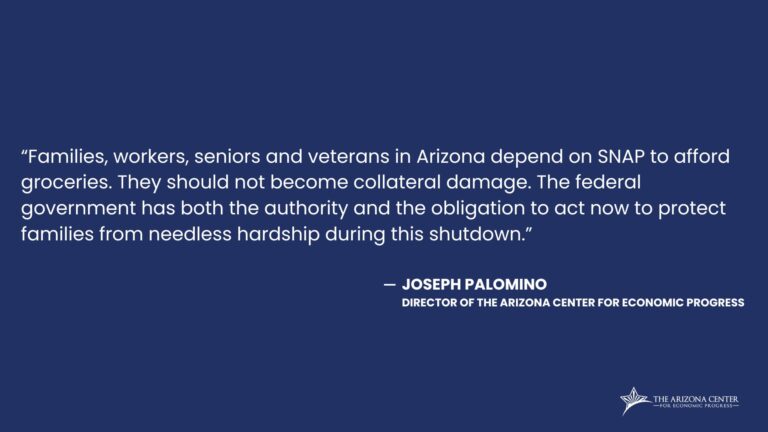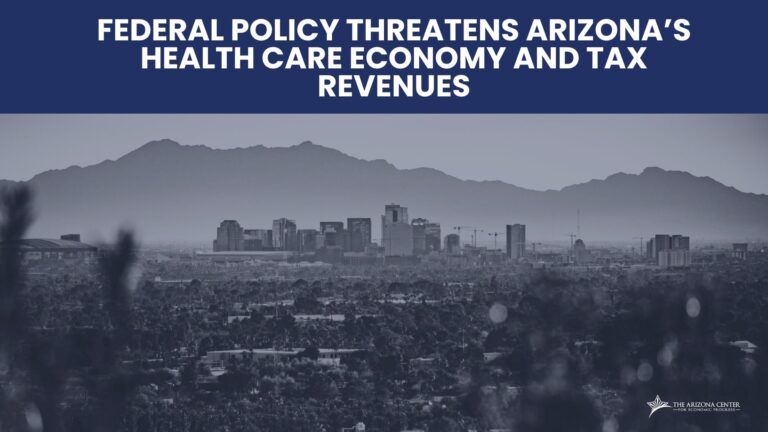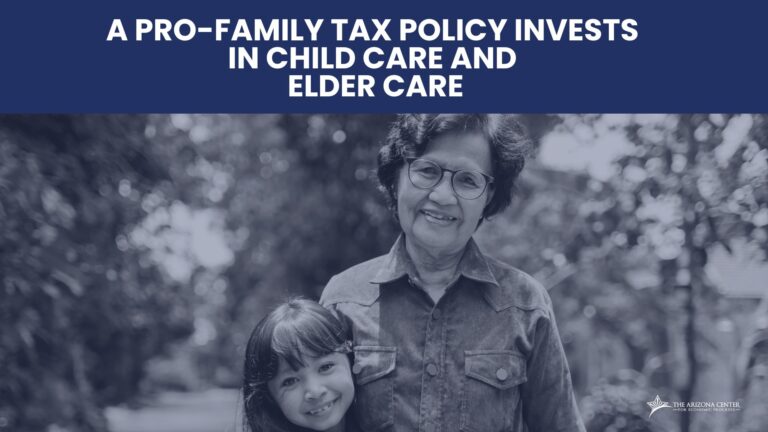
Expanding CTC Eligibility to Children with Individual Taxpayer Identification Numbers (ITINs)
This post is the third in our online series on the expanded Child Tax Credit – featuring key section(s) of our full report. Click here to view our first entry on how the expanded Child Tax Credit empowers Arizona families with lower incomes.
The Child Tax Credit (CTC) has become an important source of ongoing support for many parents. The purpose of the credit is to invest in parents as they care for their kids and help parents pay for expenses related to raising children. Prior to 2018, non-citizen children were able to benefit from the Child Tax Credit if their families met income qualifications. However, the Tax Cuts and Jobs Act of 2017 eliminated eligibility for non-citizen children without social security numbers (SSN), preventing as many as 22,800 Arizonans under the age of 15 from benefiting from the CTC.
In March, the American Rescue Plan Act (ARPA) temporarily expanded the CTC for 2021, allowing eligible families to start receiving a portion of their 2021 credit in monthly payments rather than waiting until after they file their tax return. Families with children under age 18 with a SSN can qualify for the expanded child tax credit if they meet the eligibility requirements. If their parents lack an SSN, the parents can claim the credit with their Individual Taxpayer Identification Number (ITIN) – available to non-citizens who file tax returns. However, the current expanded CTC fails to capture non-citizen children without SSNs in the safety-net CTC provides. It is estimated that including undocumented children in CTC would result in 70.8 million dollars supporting Arizonan families and the local economy.
About 453,000 children in Arizona who are foreign-born or live with at least one immigrant parent and 18 million children across the United States (U.S.). As the Congress works to make expanded CTC permanent, it is imperative that all children are included and that the CTC is expanded to children without SSNs. The CTC is a powerful tool to significantly reduce the racial and ethnic disparities in child poverty in Arizona.
Permanent expansion of CTC will cut child poverty by 45 percent in Arizona.
To ensure the expanded CTC has the greatest reach, Congress needs to permanently extend the program and make children without an SSNs eligible.
A permanently expanded and fully inclusive CTC that reaches all children who need it, including immigrant children, will help families meet their children’s basic needs, weather unexpected expenses, and plan for the future. Without a permanent expansion, many immigrant children will be left out of the safety net once again.
As we work together to recover from the pandemic, the next step is clear, include all Arizonans in permanent and expanded CTC. Children are the future, and every child in Arizona deserves the chance to reach their full potential. The expanded CTC is an effective way to reduce poverty, support economic growth in local economies, and help parents provide their children a strong start in life.
Mixed status families looking for Additional Child Tax Credit resources, click here.
More questions? Visit https://www.whitehouse.gov/child-tax-credit/, 2021 Child Tax Credit and Advance Child Tax Credit Payments Frequently Asked Questions | Internal Revenue Service (irs.gov), and How to Fill out the IRS Non-filer Form | Get it Back.



